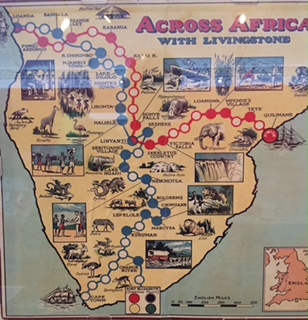Game Plan: Board Games Rediscovered

As far as markontour was concerned, board games started in about 1976 with an animal-based memory card game. But, having been educated by the Museum of Childhood’s ‘Board Games Rediscovered‘, it turns out that humanity has been gaming for a little while longer.
Indeed, like most of the basis of modern civilisation, gaming started in Africa and the middle east. The Museum of Childhood’s story starts with the Egyptians playing a dice-based racing game called Senet, about 3,500 years ago. But I remember from multiple visits to the British Museum that copies of the Royal Game of Ur have been dated back to a few hundred years earlier in Iraq.
While there aren’t any surviving rule books for these ancient games we have a fair idea how Senet and the Royal Game of Ur were played, because they were the inspiration for a sixth century Persian game which is still widely played today – backgammon. The beautiful seventeenth century German wooden version on display is a reminder that the best board games are a real art form.
A little later, India took over as the world board game capital, giving us Ludo, Snakes and Ladders, and chess, all of which were greedily adopted by British colonists during the British Empire.
Here the history of gaming takes a more serious turn and in Enlightenment times games became an important part of education, gaining mention in Maria Edgeworth’s parenting guide ‘Practical Education’.
Fellow children of the late 1970s and early 1980s may be interested to note that this was when the first ‘Game of Life’ appeared, as a method of teaching children the moral code of the age. I guess the same was true in the version we played in the Thatcher and Reagan era, where success in life was measured by dollars earned (although why was it that journalism was the best paid occupation?!).
Similarly, the original 1904 Elizabeth Magie version of Monopoly was intended to educate its players in the evils of exploitative landowners and the benefits of land value taxation. But by the time Parker Brothers started mass marketing it in 1935 it had become the modern game of capital accumulation. Monopoly, like capitalism, is now played in over 100 countries.
It was about this time that Britain seems to have taken on the mantle of the centre of world gaming, although admittedly Scrabble emanated from the USA (there is an original 1948 edition in the exhibition complete with “Patents Pending” embossed on an otherwise identical board to the modern version). But aside from the French taking credit for Risk, a military strategy game which consumed a considerable portion of my student hours, it is German games designers that have prompted a board game revival in the last couple of decades, including markontour favourites such as Carcossonne, Franks Zoo,and a host of others I have bought from the world’s greatest games shop – Spirit Games – in the Britain’s brewing capital, Burton upon Trent.
Which brings us to Pandemic, the latest but one game to be played in the markontour household. First sold in 2007, Pandemic introduces a new gaming concept – collaboration rather than competition, requiring players to work together to save the world from multiple epidemics. I was sceptical, but it really works, and it would have been great to get a game going in the museum, but sadly the board was stowed in locked glass box.
Nevertheless, it is a fitting place for the exhibition to end, with a game that is very much for more mature players, because although ‘Board Games Rediscovered’ is housed in the Museum of Childhood, gaming is most definitely not just for kids. As a George Bernard Shaw quote reminds us from one of the walls, “We don’t stop playing because we grow old. We grow old because we stop playing.”

2 Responses to “Game Plan: Board Games Rediscovered”
Whatever the game though, you always want to win 😜
LikeLike
Great. Like the mention of Maria Edgeworth. What about card games?
LikeLike